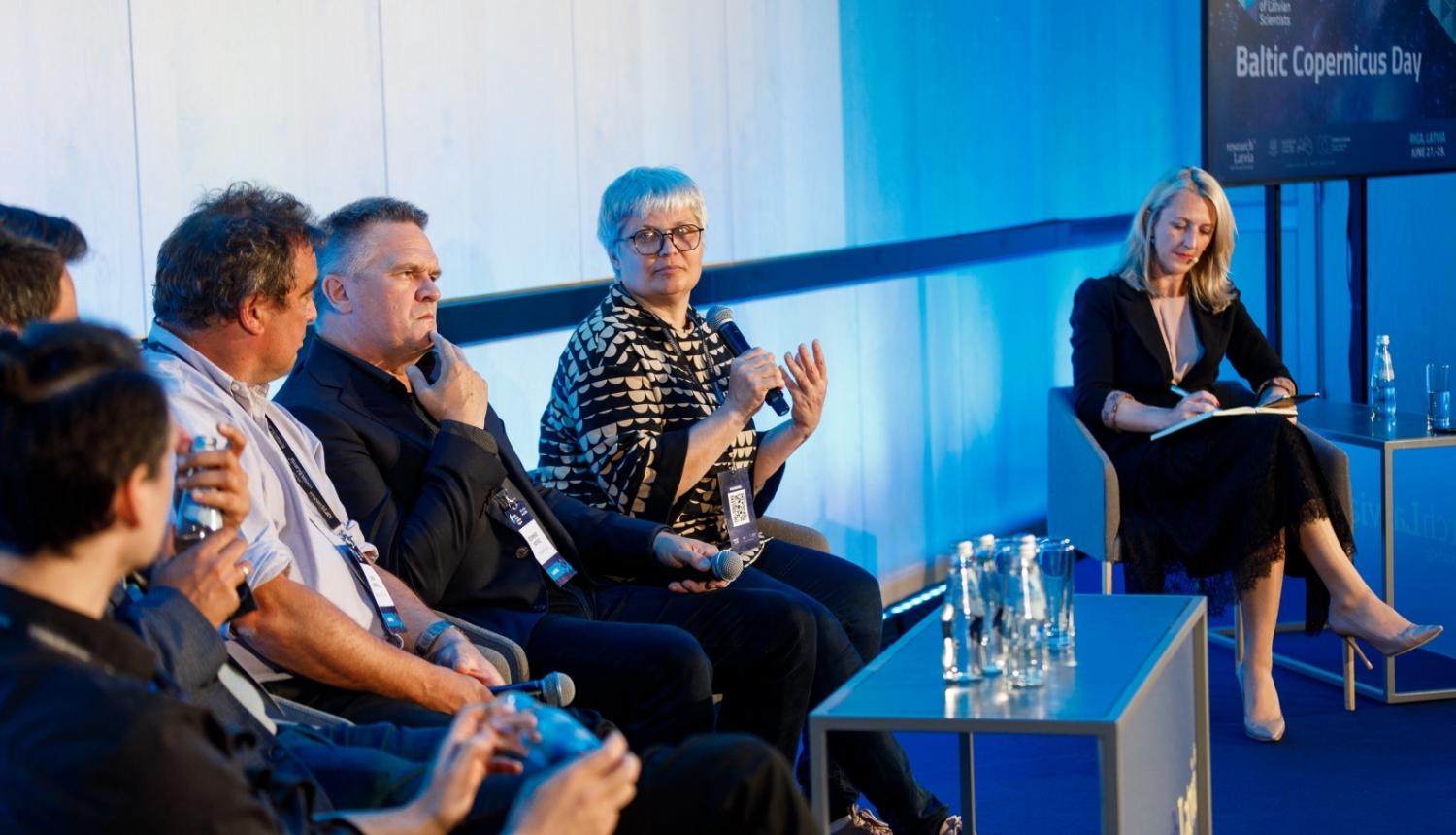During the 5th World Congress of Latvian Scientists "Research Latvia", the Baltic Copernicus Days took place, providing stakeholders from various industries with use cases of Earth observation data and with the skills necessary to promote the use of data in their organizations.
The seminar provided up-to-date and practical information on the Copernicus Earth observation programme and the opportunities it provides to scientists, entrepreneurs and representatives of state institutions who use or plan to use Earth observation data, and to promote more active use of satellite data by the Baltic States in a wide range of sectors, covering both land monitoring and maritime services, as well as information on various support mechanisms for science, business and public institutions.
In turn, in the panel discussion “Panel discussion: Competition or Cooperation? Towards a joint effort of bringing Copernicus to the Baltics: Baltic EO Platform? BALTHub? A regional centre of excellence?” participants from the Baltic States and the European Space Agency (ESA) discussed how the Baltic States can cooperate and jointly promote the wider implementation of Earth observation data products in various areas such as urban and natural resource management, forest and agricultural monitoring, as well as emergency monitoring.
Gordon Campbell, Head of ESA's Earth Observation Unit, mentioned that the use of data is very rapid in the Baltic States at the institutional level, as institutions are flexible in incorporating new technologies, and the Baltic States are much more advanced than some European regions in the digitisation processes. However, both in the Baltics and elsewhere, the traditional view of observation data management is a problem – Earth observation is not just for farming or maritime affairs, and can be used in a much wider range of sectors, but many organizations still do not see themselves as spatial data managers.
Gediminas Vaitkus, researcher and director of the Lithuanian Earth observation company Geomatrix, pointed out that the public sector is more inert than the private sector, which is trained to quickly adapt to changes and introduce new technologies. It is therefore essential that the public sector does not compete with the private sector but keeps up with innovations and becomes modern users of Earth observation services by procuring the services they need. Andrei Grishanov of Baltic Satellite Serviss (BSS) Ltd. also noted the need to improve services procurement, and that the best solution is not to procure large and complex systems, but to go step by step and make several "small purchases" that would develop the system based on experience and qualifications gained over time. The public sector must be prepared to experiment and move forward gradually.
Dainis Jakovels, lead researcher at the Institute for Environmental Solutions, stressed the need to create a healthy environment for innovation in which several players in the field of Earth observation can develop, creating healthy competition. In this environment, a significant role is played by the public sector, which perceives satellite data solutions not as a threat, but as a means of improving its functions. Maili Hirlak, department director at ESThub, pointed out the need to educate the public sector and test the opportunities offered by different datasets. In order to successfully implement Earth observation services, a certain level of knowledge must be present on both sides – the service provider and the service recipient.
Commenting on the possible cooperation between the Baltic States, panelists voiced consensus that it is possible and already happening thanks to international tenders, for example, in the framework of ESA tendera for the Baltic States’ land observation platform. At the same time, local specificities should be taken into account, such as that end users prefer to work with local developers or with developers providing local support. This is especially true for military and security solutions, where local expertise will always be important.
The World Congress of Latvian Scientists has been held in Latvia since 1991, and four congresses have been held thus far, bringing together many participants from both Latvia and abroad. In 2018, 750 participants from 24 countries took part in the 4th World Congress of Latvian Scientists. The main objectives of the Congress are to provide opportunities to exchange views on current scientific problems, to establish and strengthen contacts of Latvian scientists with scientists of Latvian origin from different countries, as well as to draw the attention of the public, media and politicians to the importance of Latvian science and the achievements of scientists.
Photo: Toms Norde, Gatis Orlickis / Ministry of Education and Science
The 5th World Congress of Latvian Scientists "Research Latvia" is implemented within the framework of the ERDF project No. 1.1.1.5/17/I/002 “Integrated national level measures for strengthening interest representations for the research and development of Latvia as part of the European Research Area”.
